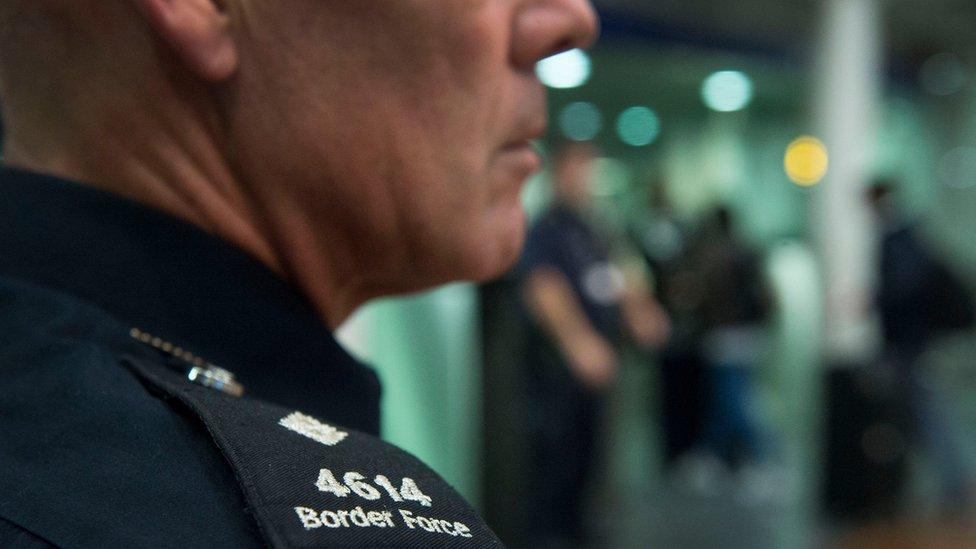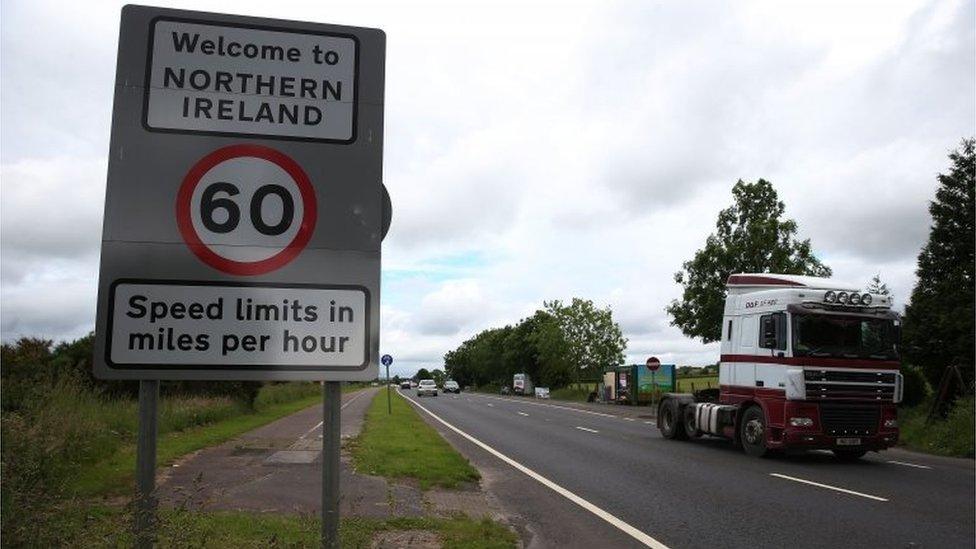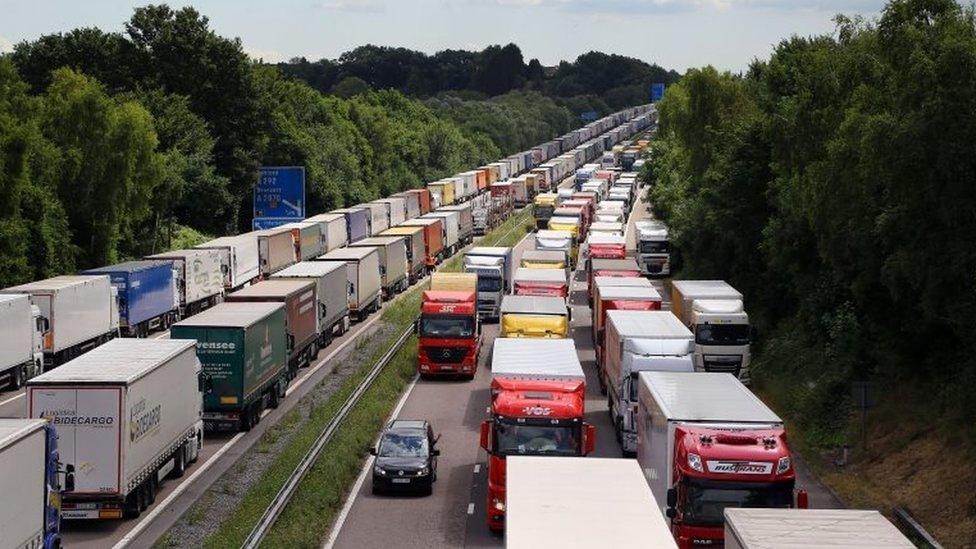Security warning over Brexit customs plans
- Published

Border staff might be diverted from "crucial security functions" after Brexit to cope with a sudden increase in customs activity, MPs have warned.
The Commons Home Affairs Committee said a planned 4% increase in Border Force staff was "completely unconvincing", warning: "Security must not be put at risk by government failure to plan."
It also warned of "major border disruption" without urgent action.
The Home Office said customs officials would have the resources they needed.
The UK is due to withdraw from the EU in March 2019 when it will also leave the customs union.
The customs union means EU member states do not impose taxes or require customs declarations on goods from other member states.
After it leaves, the UK government says it wants to agree a new "innovative" model to avoid holdups at the border but negotiations on this have yet to begin and there is expected to be a sharp increase in customs declarations after Brexit.
HM Revenue and Customs (HMRC) - which handles customs checks - has said it will need an extra 5,000 staff to cope with the extra workload, while the government has promised an extra 300 border staff will be in place on Brexit day.

The committee's chairwoman Yvette Cooper warned of "gridlock" at the Irish border
The cross-party committee of MPs said "urgent co-ordinated staff planning" was needed between HMRC and the Border Force.
"We find these plans for such a small increase in border staff completely unconvincing, particularly given the current uncertainty and the need for contingency planning," their report said.
"If new customs arrangements require a substantial increase in customs capacity which cannot be delivered in time, then there is a significant risk that Border Force staff will be diverted from crucial security functions, including preventing smuggling, the seizing of dangerous goods and immigration processes.
"The Home Office needs to plan for a significant further increase in border staffing and to ensure that arrangements are in place to prevent large numbers of staff being diverted away from other critical areas."

What is the customs union?
Countries in the customs union don't impose tariffs - taxes on imports - on each other's goods.
Every country inside the union levies the same tariffs on imports from abroad.
So, for example, a 10% tariff is imposed on some cars imported from outside the customs union, while 7.5% is imposed on roasted coffee.
Other goods - such as soap or slate - have no tariffs.
The UK has said it is leaving the EU's customs union because as a member it is unable to strike trade deals with other countries.

In the rest of its report, the committee said staying in the customs union during the post-Brexit transition period would cause the "least upheaval", calling for "no practical change to customs operations" especially at the Irish border.
And it said not enough planning was being done for the possibility of no deal with the EU, saying this would lead to a "huge amount of change in a very short time, with a vast increase required in capacity and processes at the border".
Labour MP Yvette Cooper, chairwoman of the committee, warned of a repeat of the 2015 cross-Channel transport chaos.
'Gridlock threat'
This led to the implementation of Operation Stack, in which stretches of the M20 in south-east Kent were used to park freight bound for the Channel Tunnel or the Port of Dover.

She said: "As things stand, the government is running the risk of celebrating their first day of Brexit with the sight of queues of lorries stretching for miles in Kent and gridlock on the roads of Northern Ireland, which would be incredibly damaging to the UK economy and completely unacceptable to the country.
"Contingency planning is essential. If the government gets this all wrong, we could be facing Operation Stack on steroids."
The warning follows another report, by the Commons Public Accounts Committee on Tuesday, which warned that failure to complete the introduction of a new customs system by the Brexit date would be "catastrophic".
A government spokeswoman said it was confident of securing a mutually beneficial customs agreement with the EU but it was responsible to plan for a range of possible scenarios.
"We will ensure we have the resources we need to continue to run effective customs, borders and immigration systems in the future," she said.
On the 300 additional front-line Border Force officers, the government said the number could change depending on the outcome of negotiations and "workflow monitoring".